Some dogs are happy-go-lucky with every pooch they meet. They have never encountered a furry face they didn’t want to befriend. Unfortunately, these social butterflies are the minority in the dog world. Most only enjoy spending time with certain pups and some seem to have no use for their own kind at all.
The reasons behind your dog’s choice in companions often comes down to basic canine communication.
“Dogs communicate with each other in ways that we don’t get, that we are just totally blind about,” Dr. Sharon Crowell-Davis, DVM, DACVB, a professor at the University of Georgia, says. “A dog will see something in another dog’s body language or pick up olfactory clues that signal something the first dog either likes or doesn’t like.”
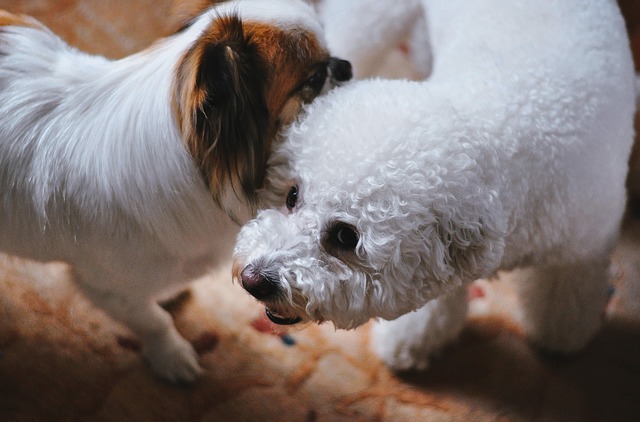
My Dog Hates One Particular Dog
Here are 5 possible reasons your dog may prefer some canine companions over others:
1. The dog sparks a positive or negative association in your pup.
It could be that your dog senses something familiar in the dogs they like and dislike. If your five pound Chihuahua has a goofy Pitbull as a best friend, he is more likely to march right up to a similar looking pooch with the same demeanor at the dog park.
“Other dogs that either look similar or move in a similar fashion or smell similar to a much-liked canine friend can affect one dog’s response to another,” says Dr. Crowell-Davis.
On the other hand, if your dog was attacked by a “little black dog” as a puppy, he may carry a lifelong fear or dislike of similar looking dogs.
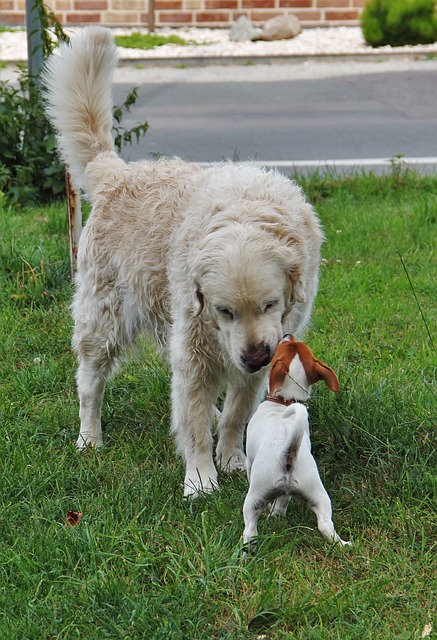
2. The dog has good or bad canine etiquette.
Dogs may also be put off by another pup’s attitude. It is considered good canine etiquette for dogs to approach one another while sniffing at the ground and then slowly begin to inspect each other. As you have probably noticed, not all dogs adhere to this unspoken rule!
If an overly eager dog barrels over and instantly starts sniffing and slobbering, it is bound to put some dogs off. Other pups carry themselves aggressively and attempt to dominate the dogs they meet by jumping up, standing above them or humping. Not surprisingly, this can be a turnoff for the potential playmate!
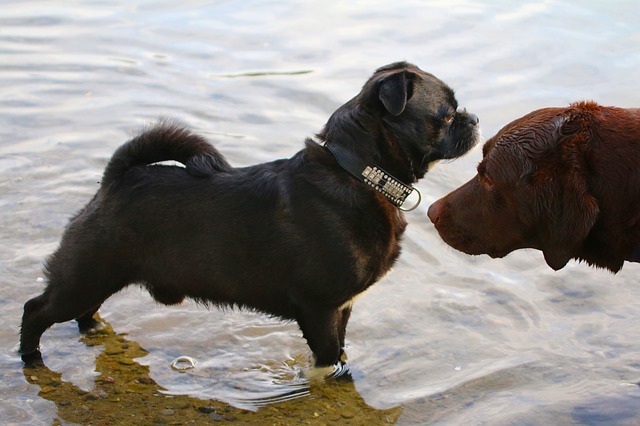
3. Your dog is attracted to or put off by a specific breed.
Certain breeds have distinctive traits that may be off-putting to your pup. Golden Retrievers are often quite mouthy when they play and Border Collies can be very bouncy and vocal. One of my dogs is extremely friendly with almost every dog he meets, but becomes confused and fearful around French and English Bulldogs – possibly because he mistakes their snorting for growling.
There is also some evidence that dogs recognize their own breed and seek them out for play.
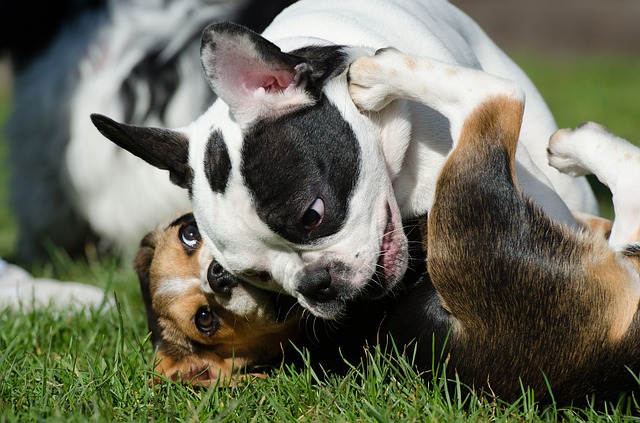
4. Your dog is simply indifferent to some pups.
Just like humans, dogs don’t always have one specific reason for liking or disliking a potential playmate. Sometimes their personalities or play styles simply don’t mesh and they prefer to keep their distance. As long as there is no aggression or fear, it is perfectly natural and acceptable for two dogs to remain acquaintances rather than becoming friends.
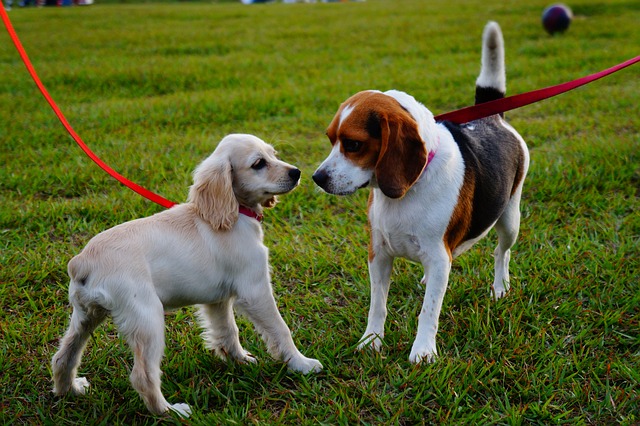
5. Your dog is overly protective or possessive of you.
Your dog’s behavior may not have anything to do with the other dog at all. It could be all about you. Some dogs are more protective and possessive of their humans than others and simply do not want another pup coming in between you. This is common in dogs that are overly coddled and have a lack of leadership at home.
Overprotective dogs are often small breeds that are more likely to be frequently carried and “babied” by their owners. As adorable as these little pocket pups may be, it is important for owners to resist the urge to treat them as tiny humans instead of dogs. No matter the size or breed, all dogs should be properly socialized with humans and other animals and at least learn basic obedience.
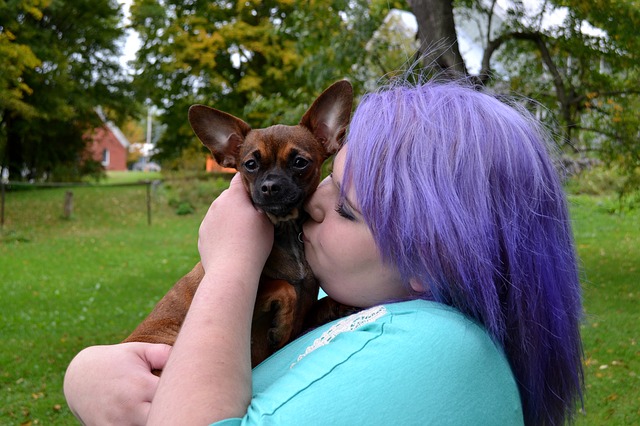
What you can do to help your dog get along better with others?
In order to prevent young puppies from developing fear or aggression towards other dogs, Dr. Crowell-Davis recommends lots of socialization through puppy kindergarten classes and plenty of real-world interactions.
“When you encounter other people with dogs, ask if their dog is friendly and is it OK if the dogs say hello to each other.”
Note: Consult your vet before allowing a young pup to interact with strange dogs. They first need to build immunity through vaccination to protect them from potentially serious diseases.
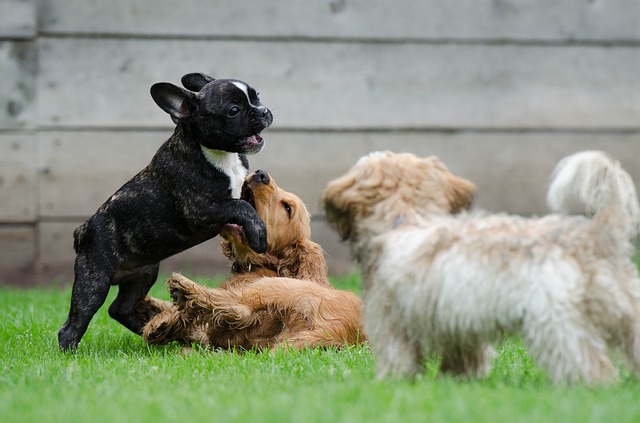
No matter your dog’s age, a mild case of dog aggression or anxiety is fixable with a bit of work and consistency on your part. Dr. Crowell-Davis recommends positive reinforcement training.
“Have the dog sit for a treat, watch you for a treat and then go out on walks. As you’re getting near to another dog, really go in the mode of lots of treats. He will start associating the presence of other dogs with two things: first, with the dog controlling itself so it gets the treats, and second, with getting the treats!”
If the problem is more serious – for example, your dog is dangerously aggressive or debilitatingly fearful towards another dog in your home or a specific dog he sees on walks – seek advice from a veterinary behaviorist or licensed dog trainer.
H/T to Vetstreet.com
Featured Image via Flickr/Eddie Van 3000
 Toledo, United States.
Toledo, United States.